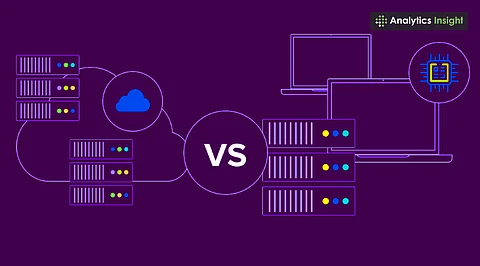Choosing the right hosting solution can significantly impact a business’s performance in 2025. As companies evaluate their options, the debate between cloud hosting and local hosting remains prominent. While both methods have unique benefits, understanding how each aligns with business goals is vital for long-term success.
Understanding Cloud Hosting
Cloud hosting involves storing data and applications on remote servers managed by third-party providers. Major players such as AWS, Google Cloud, and Microsoft Azure offer scalable solutions that allow businesses to expand their resources quickly.
One of the primary advantages of cloud hosting is its flexibility. Companies can easily adjust their storage and processing power based on demand, paying only for what they use. This pay-as-you-go model is particularly appealing for startups and small businesses that may face fluctuating traffic or seasonal spikes. Additionally, cloud providers often include automatic backups, ensuring data safety in case of hardware failures.
Yet, cloud hosting is not without its challenges. While it typically provides robust security measures, businesses must trust third-party providers to safeguard their data. Organizations dealing with sensitive information, such as those in the banking and finance sectors, might have concerns about data privacy and compliance with regulations.
Exploring Local Hosting
In contrast, local hosting involves maintaining servers on-site, giving companies direct control over their data and security protocols. This approach is preferred by businesses that prioritize having their sensitive information housed internally. Local hosting can deliver faster access for employees within the office network, which is crucial for organizations that rely on quick data retrieval and processing.
However, local hosting requires significant upfront investment. Companies must purchase the necessary hardware and often hire IT staff to manage and maintain the servers. While this may seem costly initially, businesses can benefit from predictable monthly expenses once the setup is complete. Understanding these costs is essential for making informed decisions about the long-term viability of local hosting.
Many organizations, especially startups, must weigh the benefits of scalability against the desire for control. Cloud hosting often appears more cost-effective initially, but if a business experiences rapid growth, expenses can rise sharply. In contrast, local hosting may offer a stable cost structure, making it easier to budget for the future.
Making the Right Choice
When considering cloud versus local hosting, businesses should evaluate their specific needs, budget, and growth projections. Cloud hosting is particularly well-suited for startups and companies anticipating rapid growth. The ability to access resources from anywhere and scale quickly can drive efficiency and support business expansion.
On the other hand, local hosting may be the better option for organizations that require complete control over their data and security protocols. Companies in regulated industries often find that hosting sensitive information internally offers peace of mind.
Ultimately, the decision between cloud and local hosting should be based on a careful assessment of business objectives and operational requirements. Some companies are even opting for hybrid solutions, combining the strengths of both methods to achieve an optimal balance of flexibility and control.
As businesses navigate these choices, understanding the nuances of each hosting solution will be crucial in supporting their long-term success in 2025 and beyond.
